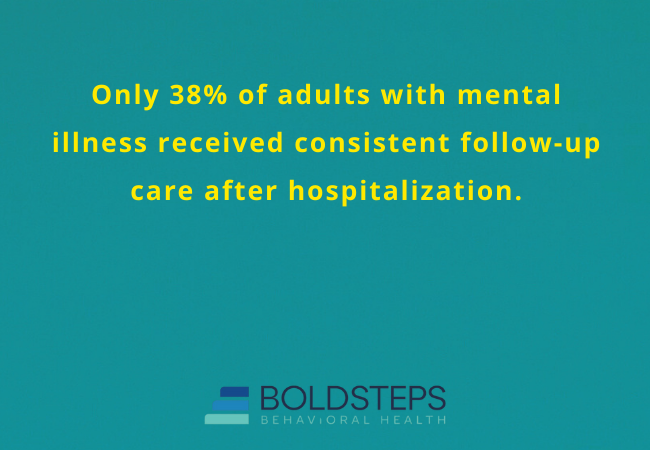Completing a treatment program is a milestone—but not the end of the road. Lasting mental wellness requires ongoing support, especially when facing life’s inevitable stressors. At Bold Steps Behavioral Health, our Outpatient Treatment Program in New Hampshire is designed to do just that—prevent relapse and reinforce long-term recovery.
Whether you’re recovering from depression, anxiety, or a dual diagnosis condition, outpatient care helps you stay connected, consistent, and confident as you navigate life beyond intensive treatment.
Understanding Mental Health Relapse: What It Looks Like and Why It Happens
A mental health relapse doesn’t always mean returning to crisis—but it often starts with subtle signs:
- Sleeping too much or too little
- Increased irritability or sadness
- Skipping meals or self-care routines
- Isolating from loved ones
- Losing interest in hobbies or responsibilities
- Increased substance cravings or risky behavior
Relapse can be triggered by stress, trauma reminders, life transitions, or simply stopping treatment too soon. Outpatient programs offer the long-term connection many people need to identify these patterns early—and respond before symptoms spiral.
How Outpatient Treatment Acts as a Relapse Prevention Tool
Outpatient care offers:
- Ongoing therapy to process triggers and develop emotional regulation
- Regular check-ins with licensed clinicians for accountability
- Medication management to ensure continuity and safety
- Supportive relationships that reinforce healing
- Lifestyle planning to help you build structure and self-efficacy
This proactive approach keeps recovery goals front and center—preventing setbacks and strengthening progress over time.
Outpatient vs. IOP vs. PHP: When Outpatient Is the Right Choice
Bold Steps NH provides a full continuum of care:
- Partial Hospitalization Program in New Hampshire (PHP): High-structure, 5–6 hours/day
- Intensive Outpatient Program in New Hampshire (IOP): 3–5 days/week, 3 hours/session
- Outpatient Treatment Program: 1–3 sessions/week; more flexible and sustainable
Outpatient care is ideal if you:
- Are transitioning from IOP or PHP
- Have a stable living environment
- Are managing symptoms but want to stay connected to care
- Need long-term emotional support with low disruption to daily life
- Want to reinforce healthy habits while working, studying, or caregiving
Core Components of Outpatient Programs at Bold Steps NH
Our outpatient services are comprehensive and tailored to individual needs, including:
- Weekly or biweekly therapy sessions
- Optional group therapy or peer support groups
- Medication management with psychiatric oversight
- Life skills and relapse prevention planning
- Family sessions when appropriate
- Telehealth options for flexibility
We ensure every client has a personalized outpatient plan designed to reinforce resilience and growth.
The Role of Ongoing Therapy in Preventing Relapse
Consistent therapy offers:
- A safe space to discuss stressors and setbacks
- Tools for self-reflection and behavioral awareness
- Space to track goals and progress
- Regular feedback to course-correct quickly
- Strategies for managing new or recurring triggers
Therapy provides more than symptom relief—it’s a relational anchor that helps you stay committed to recovery even as life changes.
Medication Management and Psychiatric Oversight in Outpatient Care
Outpatient programs at Bold Steps NH include access to licensed psychiatric providers who:
- Monitor medication adherence and effectiveness
- Adjust dosages as needed for symptom changes
- Address potential side effects
- Collaborate with therapists and primary care providers
- Support clients using medication-assisted treatment (MAT) when applicable
Continuity in psychiatric care is one of the most effective ways to prevent relapse due to medication non-compliance or mismanagement.
Support Systems and Community Integration Through Outpatient Programs
Social support is a protective factor against relapse. In outpatient care, clients receive help building:
- Healthy support networks
- Peer accountability through support groups
- Access to local resources like housing or vocational services
- Plans for sober living, hobbies, or spiritual practices
- Strategies for repairing and sustaining relationships
This support ensures you’re not alone between sessions—and creates an ecosystem that keeps healing active.
Outpatient Support for Dual Diagnosis Recovery
Clients in our Addiction Treatment Program in New Hampshire often struggle with both substance use and mental health disorders. Outpatient care helps by:
- Offering integrated care across depression, anxiety, trauma, and addiction
- Continuing relapse prevention strategies from IOP or inpatient care
- Reinforcing coping strategies without the intensity of daily sessions
- Helping clients reintegrate into work, school, and relationships gradually
Dual diagnosis recovery is complex—but outpatient care keeps it consistent and connected.
Life Skills, Coping Strategies, and Emotional Resilience
In addition to therapy, we teach essential relapse-prevention skills:
- Time and energy management
- Boundary-setting in relationships
- Problem-solving techniques
- Mindfulness, journaling, and grounding skills
- Self-compassion and shame resilience
These tools help you handle future challenges without regressing into harmful habits or thought cycles.
Client Success Stories: Maintaining Mental Health After Intensive Care
Many clients at Bold Steps NH have:
- Completed PHP or IOP
- Transitioned into outpatient care
- Maintained stability for months or years
- Returned to school, work, or parenting roles
- Built fulfilling lives with ongoing therapeutic support
Outpatient care is the bridge between recovery and real life—allowing people to live fully while staying anchored to their progress.
How Family Involvement Enhances Outpatient Relapse Prevention
Families can support relapse prevention by learning how to:
- Recognize early warning signs
- Encourage medication and therapy consistency
- Avoid enabling or codependent patterns
- Communicate without judgment
- Offer accountability and praise
Bold Steps NH offers family therapy and education, ensuring your support system works with you—not against you—in recovery.
Flexible Scheduling, Accessibility, and Continued Accountability
We make outpatient care as easy to maintain as possible with:
- Morning, afternoon, or evening sessions
- In-person and telehealth options
- Minimal disruption to work, school, or home life
- Crisis planning and emergency support protocols
- Ongoing outcome tracking and care plan updates
You stay connected without sacrificing the momentum you’ve built—because consistency is key to relapse prevention.
Long-Term Benefits of Staying Connected to Care
Outpatient care has been shown to:
- Reduce the risk of hospitalization or regression
- Improve treatment adherence
- Increase self-confidence and autonomy
- Decrease symptom reoccurrence
- Support long-term sobriety and emotional regulation
You don’t have to wait for things to get worse to return to treatment. Outpatient care keeps you ahead of relapse, not behind it.
Conclusion
Mental health recovery isn’t just about getting better—it’s about staying well. At Bold Steps NH, our Outpatient Treatment Program in New Hampshire helps you stay grounded, supported, and empowered as you transition out of higher care or maintain long-term wellness. Call 603.915.4223 to learn how our outpatient program can help you protect your progress—and thrive in your next chapter.
FAQ on Outpatient Programs
How do outpatient programs help prevent relapse?
They provide consistent therapy, medication management, and support systems that help clients monitor symptoms, manage stress, and maintain progress.
What conditions can be supported in outpatient care?
Depression, anxiety, PTSD, substance use disorders, and dual diagnosis conditions can all be treated effectively in outpatient programs.
When should someone transition from IOP or PHP to outpatient care?
When symptoms are stable and the individual can manage more independence but still benefits from professional support and structure.
Is outpatient treatment enough to maintain sobriety?
Yes—when paired with continued therapy, peer support, and relapse prevention strategies, outpatient care can sustain long-term recovery from addiction.
How often are sessions in an outpatient program?
Typically 1–3 sessions per week, including individual therapy, group therapy (optional), and psychiatric check-ins.
Does insurance cover outpatient mental health treatment?
Most insurance plans cover outpatient services. Our team can help verify benefits and explain coverage options.



